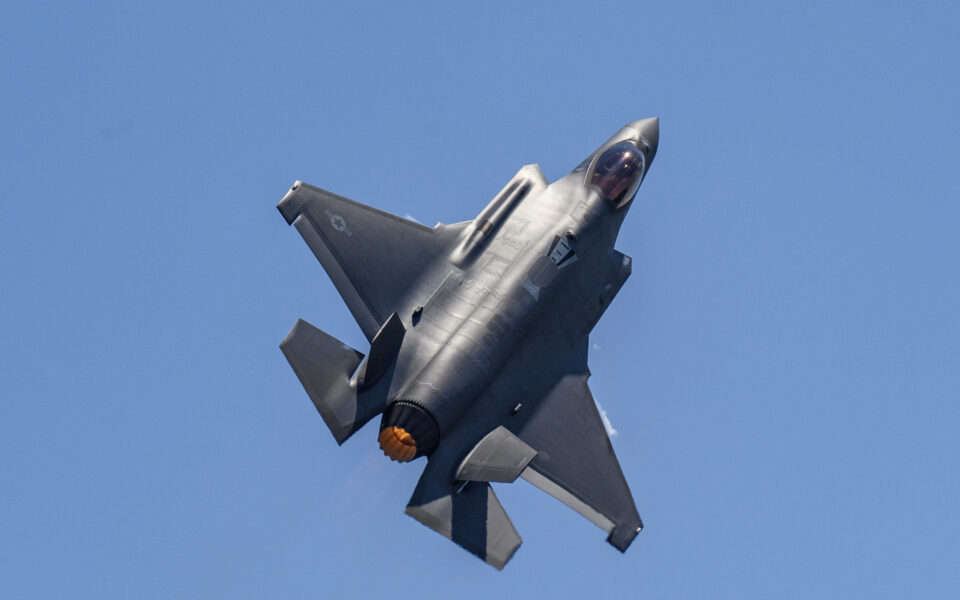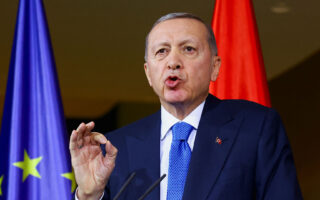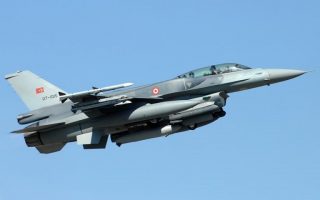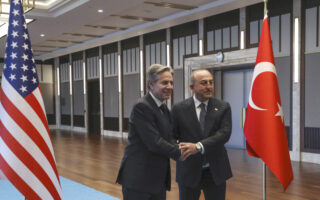Patient anticipation for the F-35s
Athens is monitoring the tug of war between Ankara and Washington, keeping a close watch on the upcoming US elections

The evolving dynamics of the intricate and often problematic US-Turkey relationship remain a constant concern for Greek diplomacy, even though public discourse about it can be challenging. Difficulties between Washington and Ankara are likely to impact Greek-Turkish relations, with enhanced coordination between these two actors consistently contributing to de-escalation, especially in recent years.
The current disagreement between Washington and Ankara revolves around the upgrade of the Turkish Air Force with F-16 fighter jets and the release of necessary financial assistance for the country’s defense industry. On the other hand, Ankara must, at last, proceed with approving Sweden’s NATO accession, a matter of utmost importance to Washington. In theory, all these issues will be evaluated after January 15 when the Turkish parliament resumes, although Ankara expects some movement from Washington earlier.
In Athens it is evident that the broader perspective includes the November elections, determining whether Joe Biden will get a second term as president or if Donald Trump will return to the White House. This potential outcome raises questions not only about the future of Greek-Turkish relations but also about the overall orientation of the West.
The request
There are also, however, some more practical issues at hand, particularly regarding the acquisition of fifth-generation F-35 fighter jets by the Hellenic Air Force (HAF). As known, the HAF submitted a Letter of Request for a Letter of Acceptance (LOR for LOA) to the United States as early as June 2022. Despite initial assurances, Washington has essentially tied the acceptance response to Athens with the progress of the request made by Ankara for the acquisition of new F-16 “Viper” planes and the upgrade of older ones.
In the logic of the US government, keeping Turkey one technological step behind Greece in the field of air power serves the need to prevent further widening of the already significant gap in other areas of military systems between the two countries.
A potential advancement of Athens’ request for F-35s without a simultaneous approval of F-16 “Vipers” for Ankara will further widen the gap in favor of the HAF, with implications not only for the Aegean but also for Turkey’s overall orientation. Turkey, of course, cannot afford to be without a fleet of modern fighter aircraft.
However, it remains a longstanding request from the Greek diaspora and Greece’s allies in Washington, who emphasize that the issue of Greek F-35s should not be held hostage to the US-Turkish dispute over Sweden’s NATO accession. It is important to note that, presently, the Turkish Air Force is dealing with significantly low availability of its fighter aircraft due to this outstanding matter. This concern is evident in the visits made by officials and executives of the Turkish government to Eurofighter partner countries – the United Kingdom, Italy, Spain, and Germany – with the latter withholding its consent for exports to Turkey.
Regarding Washington’s response to Greece, it is noteworthy that the initial letter of request was centered on the procurement of 20 F-35A aircraft with the option for an additional 20, totaling 40 aircraft over time.
Fiscal space
According to well-informed sources, the delay in the response so far has not been a concern for Athens where there has already been apprehension about the fiscal space available for new equipment. It appears that Athens is inclined towards a more limited number of aircraft initially – specifically 12 instead of the originally requested 20. As everything indicates, the expected response in the first months of 2024 will lead to negotiations between the two sides, ultimately resulting in more practical steps.
If the acceptance letter does reach Athens in the first months of 2024, discussions may last for several months due to substantial reasons. Several officials in the Defense Ministry estimate that the F-35s could potentially be included under the Foreign Military Financing (FMF) program, a development that would facilitate the Greek side. Currently, Greece is trying to prioritize defense expenses for the next decade. Beyond the F-35s per se, the commencement of negotiations will reopen some chapters related to the support and establishment of necessary infrastructure for these systems.





